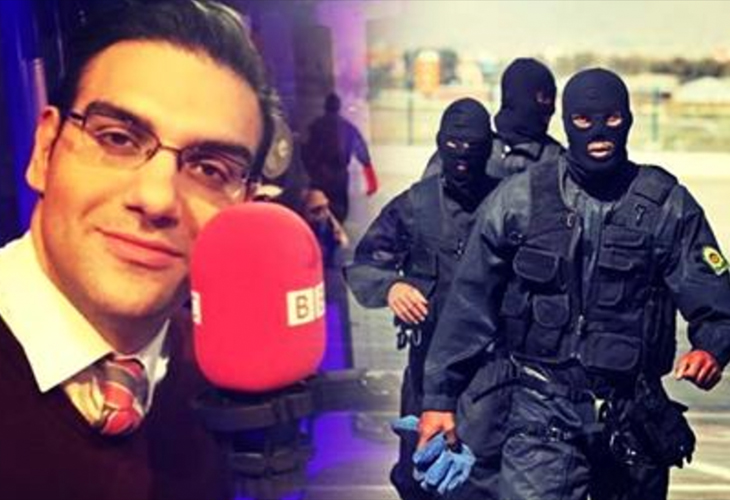
IPFS News Link • Refugees
A British citizen and BBC journalist who hadn't been allowed in Iran since 2009...
• http://www.trueactivist.comA British citizen and BBC journalist who hadn't been allowed in Iran since 2009 was detained at a Chicago airport and interrogated for over two hours.

By: Claire Bernish / The Free Thought Project Chicago — "I was arrested back home in Iran in 2009 because I was working for the BBC. It felt the same this time," observed BBC World Service journalist Ali Hamedani, after being detained at Chicago's O'Hare Airport thanks to the ban on refugees and clamp down on immigration.
Allow a moment to consider the irony of such a comparison — particularly in the context of the executive order's stated purpose of combating terrorism imported from despotic nations.
At an American airport, Hamedani — a BBC journalist and British citizen — endured over two hours of interrogation by U.S. border agents because, at one time, he hailed from Iran. But Hamedani no longer even possesses an Iranian passport due to his employment with the BBC since 2009.
Agents requested Hamedani hand over his cell phone — commandeering it in a manner leaving it unlocked and searchable.
"They took away my phone and started searching my Twitter account. So, they were looking to find out about my political views, whether I'm 'supporting' anybody — any kind of extremist view or not," he told Stephen Nolan in an interview for BBC Radio's 5 live. "I was also asked questions like if I had been training with the military in Iran … When was the last time I'd been home in Iran."
Hamedani had traveled from London's Heathrow Airport on his way to Los Angeles when border agents detained him for his Iranian roots. But considering the journalist hasn't even possessed an Iranian passport — nor has he been allowed to enter the country — in eight years, the encounter evinces astonishing scrutiny with which Trump's ban is being enforced.
Indeed, Hamedani indicated the agents were entirely unreasonable, putting suspicions before evidence — making the lengthy detainment more inquisition-style harassment than simple questioning.
Returning to Iran wouldn't be an option, he explained to interrogators, because of the fact he works for the BBC — a media agency the Iranian government does not find favorable — would see him arrested by authorities.
"But still, I couldn't convince the guy," Hamedani said of a border agent, "because he kept questioning me about an Iranian passport; why I'm holding a British passport; why didn't I enter the country with an Iranian passport."
Nothing the journalist told the interrogators satisfied suspicions he somehow still held strong ties to Iran — one of seven predominantly Muslim nations targeted by the temporary halt on immigration.
Iraq, Libya, Somalia, Sudan, Syria, and Yemen also made Trump's list of verboten countries — none of which have had civilian or government connections to any terror attacks on U.S. soil.
Nonetheless, citizens of the blacklisted nations already en route to the United States to immigrate legally suddenly found themselves in a new refugee status — some, unable to stay, faced possible arrest or death upon returning to their nation of origin.
In particular, the absurdity fell hard on Iraqi, Hameed Khalid Darweesh, who was detained in New York's Kennedy Airport at the nascent stages of the ban.
Darweesh signed up to work as an interpreter for the U.S. military in 2003 upon the invasion of Iraq, and later worked as a contract engineer — literally putting his life on the line on both the battlefield and in the betrayal of his nation's government.

























